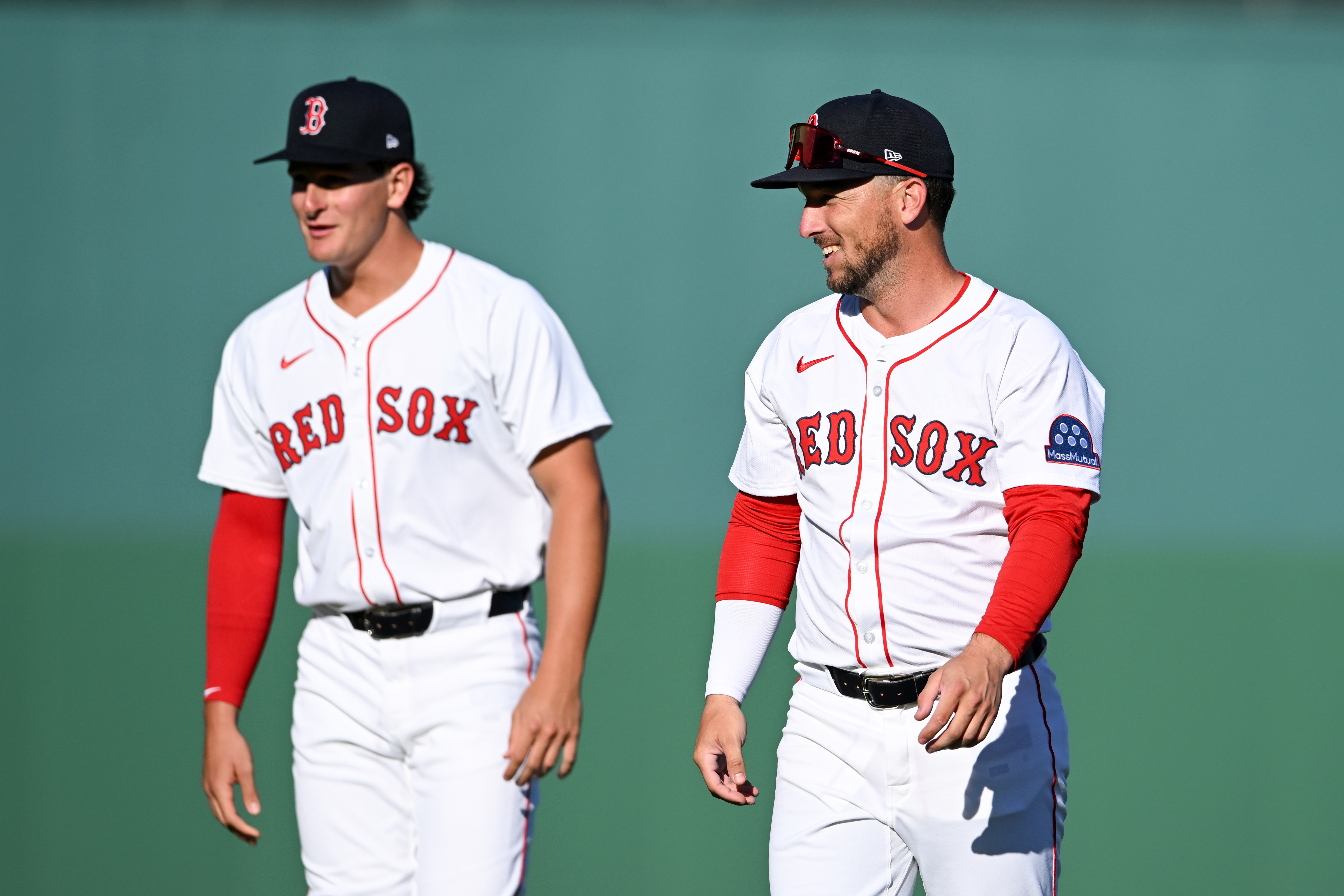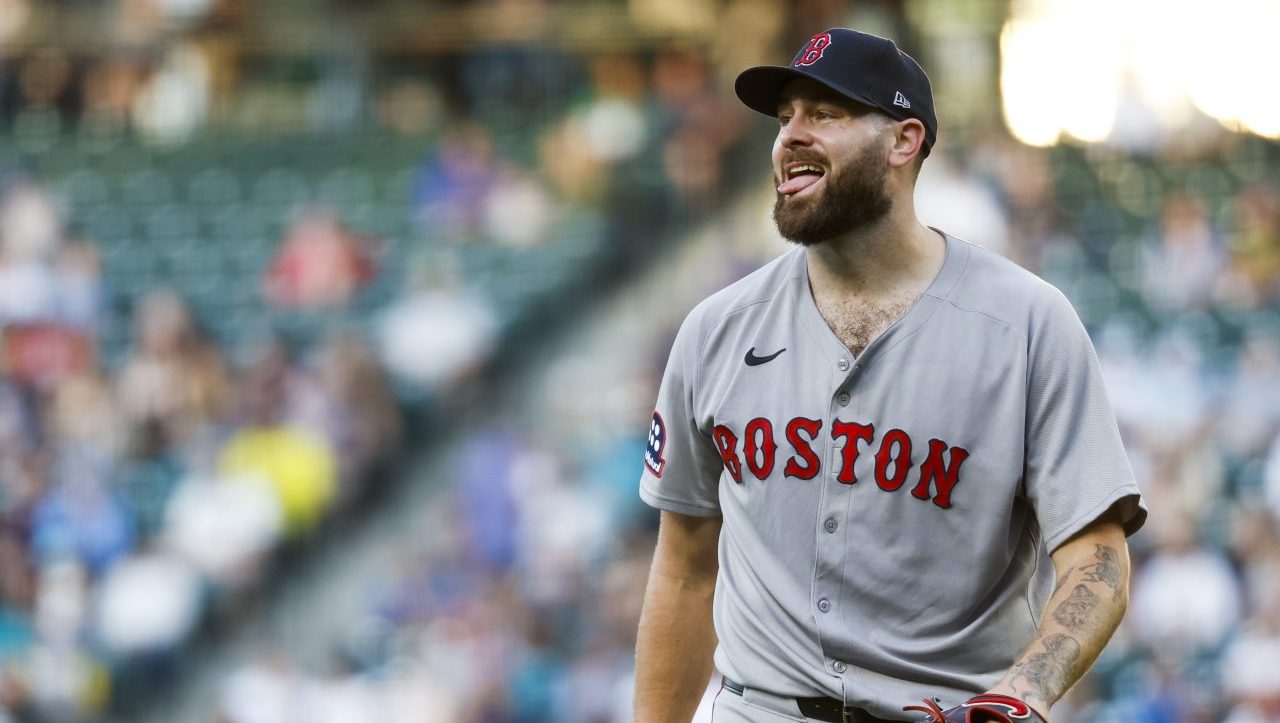
The question shouldn't be if Mookie Betts is worth $30 million a year, but this:
Is anyone?
Look across baseball, and the game's longest, largest contracts consistently crap out. Presumed AL MVP Mike Trout, who signed a historic 12-year, $430 million deal, is an exception, because of course he is. Until a foot injury ended his season, he was rampaging towards his first 50-homer campaign, though a lot of good it did the Angels, who are already guaranteed their fourth straight losing season.
And that's part of the problem. In a sport where few teams have the resources or will to spend beyond $200 million, a $30 million contract can tie up 15 percent of the payroll.
In the same winter that Trout signed the biggest contract in sports history, two other young stars in their primes also cashed in, and it's hard to argue either team got its money's worth in Year 1. They should be viewed as cautionary tales before the Red Sox make a similarly monster expenditure on Betts.
Former NL MVP Bryce Harper, 26, received $330 million from the Phillies over 13 years, while Manny Machado, 27, scored a 10-year, $300 million contract from the Padres.
Boston Red Sox
Find the latest Boston Red Sox news, highlights, analysis and more with NBC Sports Boston.
The returns thus far are decidedly meh. Harper is hitting .253 with 31 home runs, 102 RBIs, and an .864 OPS. Machado's at .256-30-82-.797 and leads the NL in double plays with 24.
In a season with more homers than ever, 30 ain't what it used to be. Daniel Vogelbach, Mitch Garver, and Kole Calhoun are just three of the game's 48 sluggers with at least 30 bombs. Among position players, Harper (3.4) and Machado (3.0) rank 62nd and 70th, respectively in WAR, right behind Angels utilityman David Fletcher (?!?) and Yankees fire hydrant Mike Tauchman.
This shouldn't come as a surprise. The players who swim in the deepest end of the salary pool almost always end up needing a life preserver, and sooner than you'd think.
Consider the rest of baseball's 10 richest contracts. Giancarlo Stanton ($325 million) has been limited to nine games by injuries and like Harper has basically delivered one outlier MVP season amidst a sea of pretty good. He signed his 13-year deal with the Marlins at age 25.
Alex Rodriguez makes the list twice, first for his landmark $252 million contract with the Rangers in 2001, and then for the $275 million deal he renegotiated with the Yankees in 2008. You'll get no argument with contract No. 1, which included three MVP awards and more than 350 homers. Contract No. 2 is one of the worst in sports history, highlighted by scandal and injury and eventually ending with the Yankees paying A-Rod not to play at all in 2017.
More encouraging is what the Rockies have received from third baseman Nolan Arenado, who is completing a fifth straight All-Star season in the first year of his eight-year, $260 million extension. So far, so good.
The same cannot be said of former Triple Crown winner Miguel Cabrera, whose eight-year, $240 million extension runs through 2023. He has 10 home runs after hitting three last year, and eventually he may receive the A-Rod treatment from Detroit, which owes him a staggering $124 million over the next four years.
Cabrera's might not even be the worst deal running through 2023. Remember Robinson Cano? The Mariners signed him for 10 years and $228 million at age 31 in 2014. He delivered three All-Star appearances in his first four seasons before falling off the face of the earth. The Mets subsequently chose to eat his salary to acquire All-Star closer Edwin Diaz, and he has delivered 13 homers and 37 RBIs this year.
Then there's Albert Pujols, whom the Angels swiped from the Cardinals at age 32 in 2012 with a 10-year, $240 million deal. He has made one All-Star team since.
Cabrera, Cano, Pujols, and A-Rod (the 2nd time) were all players on the wrong side of 30 signed in a different era, one could reasonably counter. Today's owners recognize that the biggest contracts should be reserved for stars like Betts in their 20s, who are more likely to deliver, especially in the first half of their deals.
Ask the Twins how that worked out when they signed 27-year-old MVP Joe Mauer to an eight-year, $184 million contract in 2011. He limped to the finish line as a broken-down first baseman/DH.
Or the Cubs, who jumped on Gold Glove outfielder at Jason Heyward when he was 26, figuring they'd lock in his prime for eight years and $184 million in 2016. He has instead delivered below-average production for four straight seasons.
Or the Rockies, who watched All-Star shortstop Troy Tulowitzki break down shortly after signing a 10-year contract in 2011 at age 26. Or the Tigers, who gave Prince Fielder $214 million at age 28. Or the Yankees, who must be wondering what kind of player Stanton will be moving forward.
A case can be made that Betts is a better all-around player than all of them, with a diverse enough skillset to maintain value even if one or two of the component parts regress. But the Red Sox already know what it's like to pay someone $30 million and wonder if it was wise. Left-handers David Price and Chris Sale represent worse long-term investments than Betts, and both are already breaking down. Their bad money may render any discussion of extending Betts pointless, with owner John Henry deciding that he will not, in fact, tie up nearly half of his payroll in three players.
If that's the case, and the Red Sox trade Betts this winter, they will lose a tremendous talent. They may also be doing right by the long-term interests of the franchise, because the lengthier and richer the deal, the more likely history suggests it will be to miss.
Click here to download the new MyTeams App by NBC Sports! Receive comprehensive coverage of your teams and stream the Celtics easily on your device.


